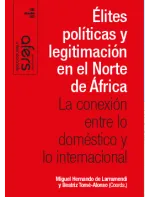“The new Argelia” after Hirak: narratives and legitimation strategies vis-à-vis its European partners

Laurence Thieux, profesora del Departamento de Relaciones Internacionales e Historia Global , Universidad Complutense de Madrid. lthieux@ucm.es . ORCID: https://orcid.org/0000 0002 2532 1092
The popular movement in Algeria against a fifth presidential term for Abdelaziz Bouteflika in February 2019 – known as the Hirak – laid bare the population’s discontent with a political regime incapable of satisfying its demands for dignity and political freedoms. In the face of the Hirak, the military took control again, imposing a road map aimed at re-establishing institutional normality. But neither Bouteflika’s resignation nor fresh elections served to give the new government the mantle of legitimacy of power, a fragility that it tried to offset by reviving traditional means – like historical legitimacy – and deploying a strategy on the international stage designed to win the support of international partners. This paper addresses the process of co-construction of a narrative with the aim of legitimising the political reconstitution of the post-Hirak Algerian regime, based on the examples of Spain and France.
Key words: Algeria, Hirak, France, Spain, European Union, international legitimation
How to cite this article: Thieux, Laurence. «La nueva Argelia» después del Hirak: discursos y estrategias de legitimación ante sus socios europeos». Revista CIDOB d’Afers Internacionals, n.º 135 (diciembre de 2023), p. 115-141. DOI: doi.org/10.24241/rcai.2023.135.3.115
Revista CIDOB d’Afers Internacionals, nº 135, p. 115-141
Quadrimestral (October-December 2023)-
ISSN:1133-6595 | E-ISSN:2013-035X
DOI: https://doi.org/10.24241/rcai.2023.135.3.115
Reception date: 23.03.23 ; Acceptance date: 31.08.23
>> The full text articles of this issue are available only in Spanish language
Translation from the original in French: Paloma Valenciano and CIDOB editorial staff